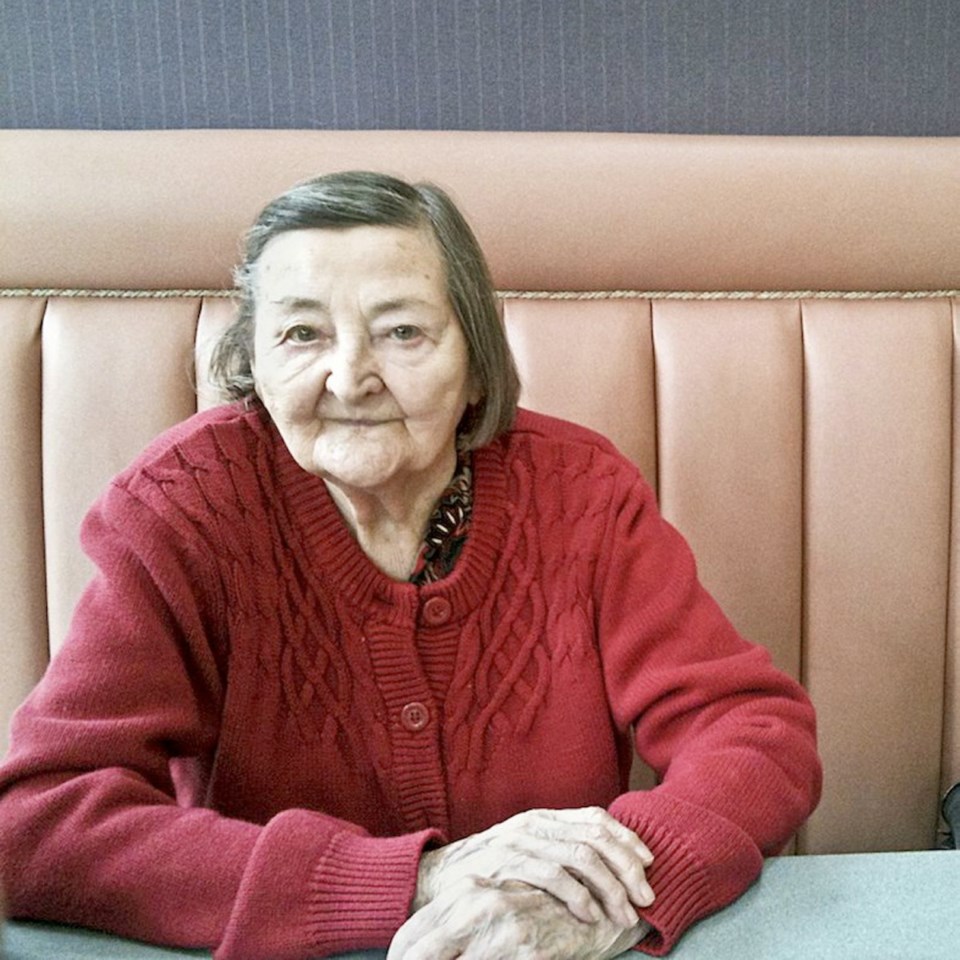REVIEW
What: Joan (Belfry Theatre’s Spark Festival)
Where: Metro Studio, Victoria Conservatory of Music
When: To March 26
Rating: three stars (out of five)
If you attended performing-arts events in Victoria in the early 2000s, you likely knew — or at least, recognized — Joan Mans.
Short and stout, Mans was a peculiar old arts maven who always went to concerts and plays by herself. She had a distinctive haircut (close-cropped bob) and voice (fruity, English-accented).
She was the sort who’d phone up the Times Colonist entertainment writers out of the blue to solicit their thoughts on plays or films. Mans would explain she was unable to read the reviews because she couldn’t afford the cost of a newspaper.
In short, Mans — who died in 2010 at the age of 85 — was a bona fide Victoria eccentric. She’s now the subject of Joan, a play by Matthew Payne, an actor and writer who’s artistic producer of Theatre SKAM.
It’s an autobiographical piece. In his play, Payne reveals he initially found Mans to be a chattering pest. However, she eventually wore him down. He befriended her. Near the end, when Mans’ failing health confined her to an old-age home, it was Payne who visited three times a week. He’d become her best friend and surrogate son; he was the person summoned to view the body when she died.
Joan, being staged as part of the Belfry Theatre’s Spark Festival, is something of a mixed bag. The script never quite transcends the raw material (Payne did 13 hours of interviews with Mans). Those who knew Mans might find it of passing interest; others will leave the theatre wondering what the fuss was about.
Still, there are some good things at work. The production benefits from James Fagan Tait’s skilled, imaginative direction. There’s clever use of audio and video clips (there’s a lovely poignant ending in which we see grainy footage of Mans waving through a door window). Thursday’s preview performance offered good acting from Lynda Raino as Mans, Treena Stubel as a younger Mans and Payne, who plays himself.
The real question is whether the life of Joan Mans is sufficiently fascinating to sustain an 80-minute play. Payne pieces together various bits of her story like a jig-saw puzzle. He discovers she grew up in West Hartlepool in England. She was in the Women’s Royal Naval Service (the Wrens) and was posted to such locals as Prague, Baghdad and Bangkok. There are glimmers of intrigue and romance, too. Mans was said to have had an affair with a “famous conductor” when she was 19, although no one’s quite sure who he was.
Realizing that a play needs to be more than a potted life history, Payne also references the theme of memory. There’s a mention of Proust. There’s some discussion of how our memories tend to change each time we summon them up — despite our belief in their veracity.
Such an interesting theme might have lifted Joan up from the mundanity of biographical details to universality. However, it’s never fully developed.
There’s a structural problem in that Joan presents a false ending. After Mans dies, the play continues for another 20 minutes. There’s a curious sense of let-down, of deflation, since the death of a main character usually signals a quick conclusion.
As we know from blog posts and podcasts, the danger of autobiographical material is that it can be difficult for the creator to view it dispassionately. Sentimentality and self-indulgence are potential pitfalls. The details of our own lives are invariably fascinating to us — to others, less so.
Near the beginning of his play, Payne declares: “This is Joan Mans and this is her story … as best I can remember it.” He has done a terrific job of researching her history. And he’s presented it with affection and intelligence.
That said, I suspect this production will merely be of passing interest to those who never knew this Victoria eccentric.
